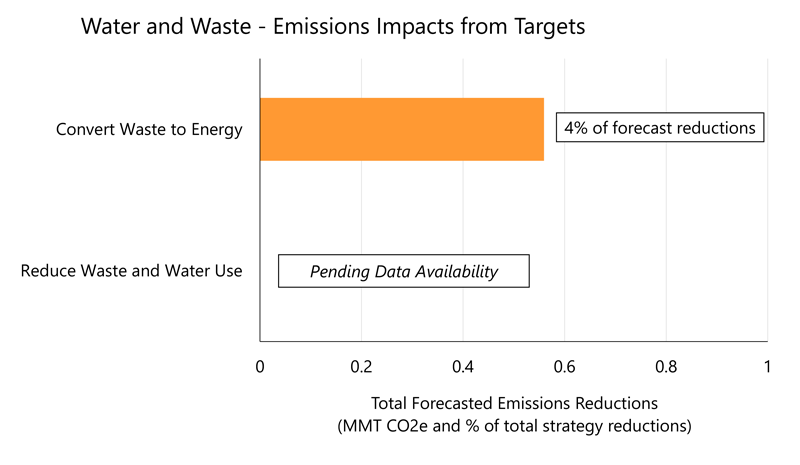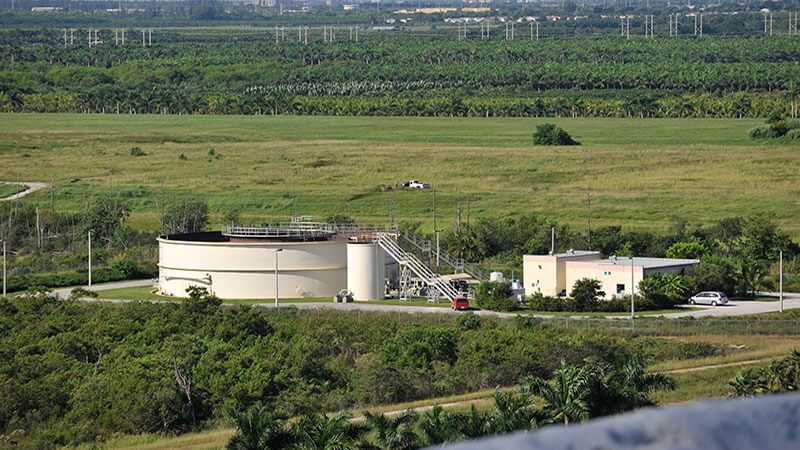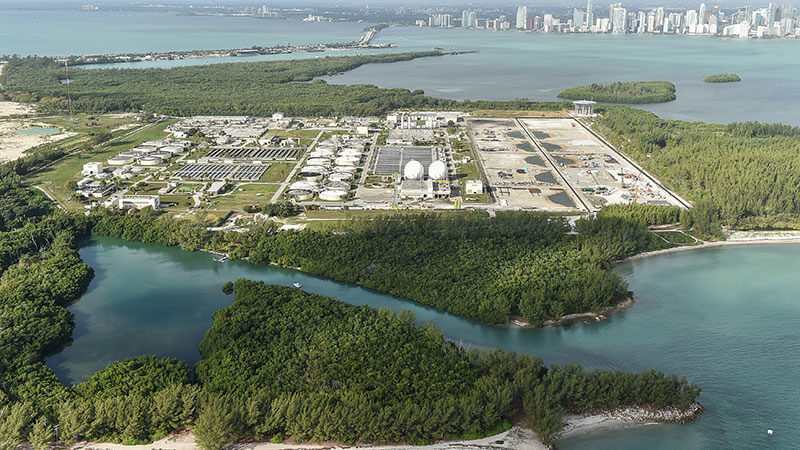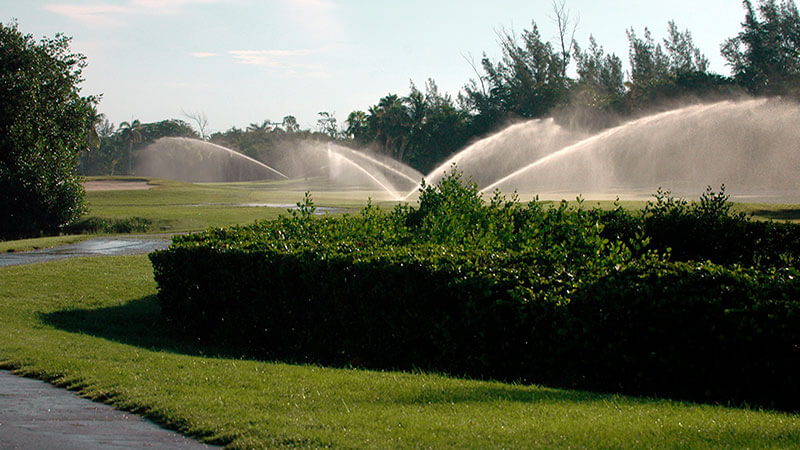Water & Waste
Approach 6: Convert Waste to Energy
Miami-Dade’s Department of Solid Waste Management (DSWM) and its Water and Sewer Department (WASD) are the County’s largest service providers for processing waste, water, and wastewater services in the county. These services are essential for community, environmental, and economic sustainability. For decades, both departments have burned waste to produce energy. By investing in new, more efficient facilities the County can create more energy, avoid harmful methane emissions, and avoid sending waste to the landfill
Approach 7: Reduce Waste and Water Use
Producing less waste and using less water are the easiest and cheapest ways to reduce emissions. In Miami-Dade County each person produces an average of six pounds of garbage and uses 140 gallons of water every day. Moving and processing that garbage and water takes a lot of electricity and fuel, which costs residents and businesses money. County water conservation, recycling, composting, and food recovery programs help reduce waste. Community-led initiatives and entrepreneurial innovation can have an even bigger impact by creating new businesses and jobs.
Target Implementation Emissions Impact

Contact Us

Environmental Resources Management
Loren Parra
Overtown Transit Village North
701 NW 1st Court,
Miami, FL 33136
305-372-6789



